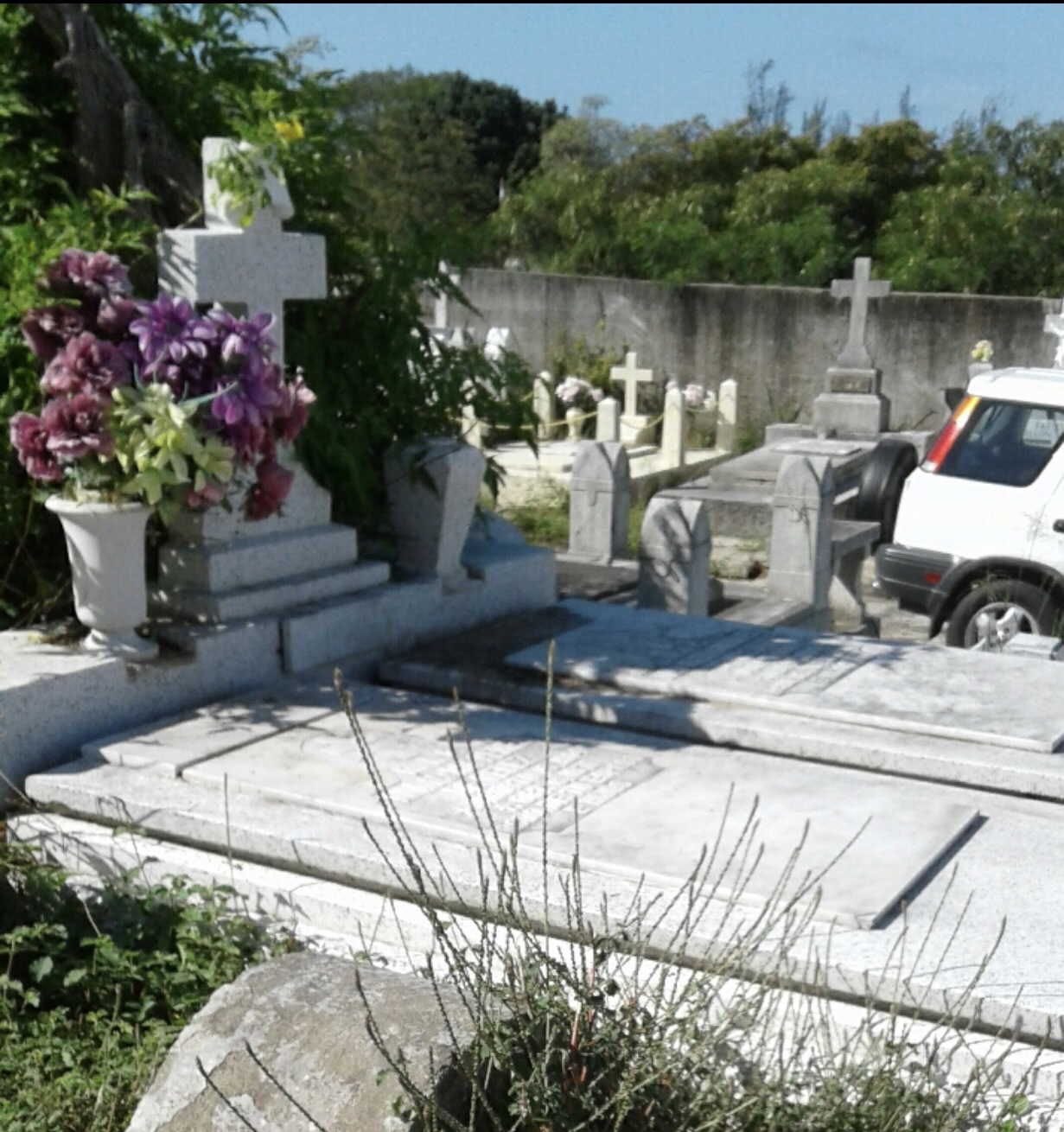Papi's passing didn't come as a surprised, as you know. He had senile cancer. When I saw him he wasn't the shadow of the man I'd come to know. No one told him what he had though he kept asking. In the end he turned even more emaciated. I didn't want to see him that way.
I skipped the funeral. It helped that no one cared to let me know when it was to take place. The Puerto Rican cultural imperative demanded I jumped on a plane right away. The dates would take care of themselves.
But I didn't do it. I just couldn't do it.
I took a day off to mourn and that, was that. Tío Pin conducted the funeral service in his new role as Orthodox priest. Word was that Tío Pin delivered a beautiful homily. I've never known its details.
Tío Pin understood my reluctance not to attend the funeral. He understood I didn't want that last image of Papi's thin body laying in a casket.
Puerto Rican Gothic

Instead, when I got to talk to Tío, he decided to go Gothic on me. He told me how he had gone to the cemetery to inspect the family grave and get it ready for Papi's burial. He decided to open the side of the grave containing Mama Ana's remains and make space for Papi's casket. Mamá Ana's casket had laid there, unperturbed, since 1971.
The cemetery personnel attempted to extract Mama's casket. But, they didn't know corrosion had eaten its bottom plate. When they pulled out the casket, only its four sides and top lid came out. The bottom plate collapsed back into the grave.
Tío Pin then told me that only one of Mamá's femurs survived all those years. Only dirt and fibers of the green dress her body word remained besides the femur. Cemetery workers put Mamá's remains in a plastic bag and placed it next to Papi's casket after lowering it.
"Remember the green dress Mamá wore during her wake?" asked Tío. "Yes," I answered dryly. "Well, the whole thing had disintegrated, only the green fibers remained."
He was upbeat in his narrative as I relived one of the worst days of my life. Thank God we were using a landline and didn't see each other. Video calls for the masses still laid in the future in 1998.
About Papi
In retrospect, my grandfather had been the most important male figure an role model in my life. He always considered me more like a son than a grandson. He'd even tried to adopt me, but Mom had said no. I share this not to criticize Mom but to show how far Papi was willing to go in his love for me. He was always there when I'd needed him, and had always watched for my welfare.
I must say that I didn't always understand him. That was because he had been born almost 60 years before I was. Puerto Rico had endured a radical transformation during that time. The Island had gone from an agrarian backwater to an industrial powerhouse in those 60 years. Papi had transformed with them.
Yet, his ideal kind of life remained owning a bit of land in the mountains. A plot with a gabled, wooden house. Plantains, bananas, and other staples would've decorated his little plot. Chicken would've the run of the place, laying fresh eggs every morning. He would've sit at his little porch, Mamá by her side. Alas, it never happened.
Still, Papi found love late in life again. He found a woman who understood and cared for him. His depression had lifted and was able to laugh spontaneously again.
Papi wasn't too demonstrative in term of his love, but his love was boundless and deep, even if he didn't use words. When he suffered, he did so in quiet, except for that explosion of tears after Mamá had passed away.
He's in a better place now, I'm convinced. I know I'll see him again and there are times in which even now I sense his invisible presence by my side. Sometimes I look in the mirror and can see some of the traits I'd inherited from him. That is, I see him on my reflection every so often.
As I now near my own sixth decade of life I have small grandchildren with the same age difference Papi and I had. I hope and pray I can be as present in their lives as Papi was in mine.
I'll see you later, Papi, with God's help.




